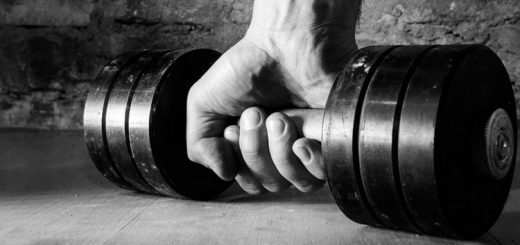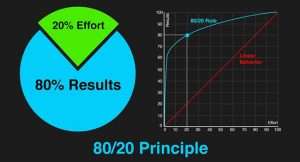The Pareto Diet System: Part 1 – 80-20 approach to healthy eating

The Pareto Principle, aka the 80-20 rule, says that for many events 80 percent of the outcome comes from 20 percent of the effort.
Weight-loss is no different, however too many people approach weight-loss the wrong way looking for some magic superfood that is going to improve their fitness and diet. The reality is that they would probably be better served by following a consistent, and sensible approach to diet. The main factors in a successful weight-loss are:
- Compliance
- Total Caloric Intake
- Macronutrient Intake
- Micronutrient Intake
Unless you have special dietary needs (Allergies, intolerances etc), the exact composition and timing of the meals you eat are not huge factors. You can even get the bulk of the weightloss benefits by eating twinkies. Now this is not to suggest that this is the healthiest approach to eating, but if you are eating at a caloric deficit on a consistent basis you will loose weight. Additionally since obesity, and particularly visceral fat is a huge contributor to heart disease, diabetes etc, losing weight will tend to benefit your health even if your micronutrients are a little bit off (and this is frankly easy to fix with supplementation.
In this article I will lay out the most important factors in diet, based on the 80-20 approach.
Rule #1: Compliance
Most people succeed with their diets in the short term, but fail in the long term. Often regaining even more weight than they lost. They easily give up hope. This is why overly restrictive and complex diets don’t work in the long term. You need to follow a diet which you can enjoy and continue in the long term.
Yoyo dieting is bad as your body reduces its metabolic rate in response to the caloric fluctuations, and this sort of dieting which makes it progressively harder for you to loose weight time.
Rule #2: Total Caloric Intake
Generally speaking if your energy intake is greater than the energy used by the body, the body will try to convert some of that to store as fat.
Calories are a means of measuring that energy intake. They are not 100% perfect measure, they are generally pretty good.
There are differences in how efficiently the body processes calories from certain types of foods (eg. very efficiently with sugar, however less efficiently with protein). But I think nutritionists and other emphasizing these differences are doing a disservice to the general population, by having them focus on the wrong thing. The total caloric intake and expenditure remains a very important indicator.
Rule #3: Macronutrient Intake
The three main macro nutrients are Carbohydrates, Fats, and Protein. Generally you want to watch that you are getting these in conjunction to make progress towards your goals. In the 1980s, and 1990s it was fashionable to demonize fats, and currently its is fashionable to demonize carbs for weight loss purposes.
The reality is that it doesn’t actually matter, so long as you get a baseline amount of protein and fats, you can fill up the rest of your calories with
Rule #4: Micronutrient Intake
Micronutrient intake is important for overall health, even though it is not particularly important for weight-loss. A lack of micronutrients, can cause problems with your skin, gums, infections, nervous system issues, weakness, and other ailments. In really severe cases it can even cause death. If you are eating a lot of whole foods (vegetables, meat, whole grains etc) you will generally get most of the micronutrient intake that you need.
You may have to supplement some specific vitamins in order to get your total daily intake if you are prone to deficiency, or you can also take a multivitamin to help support your diet.




